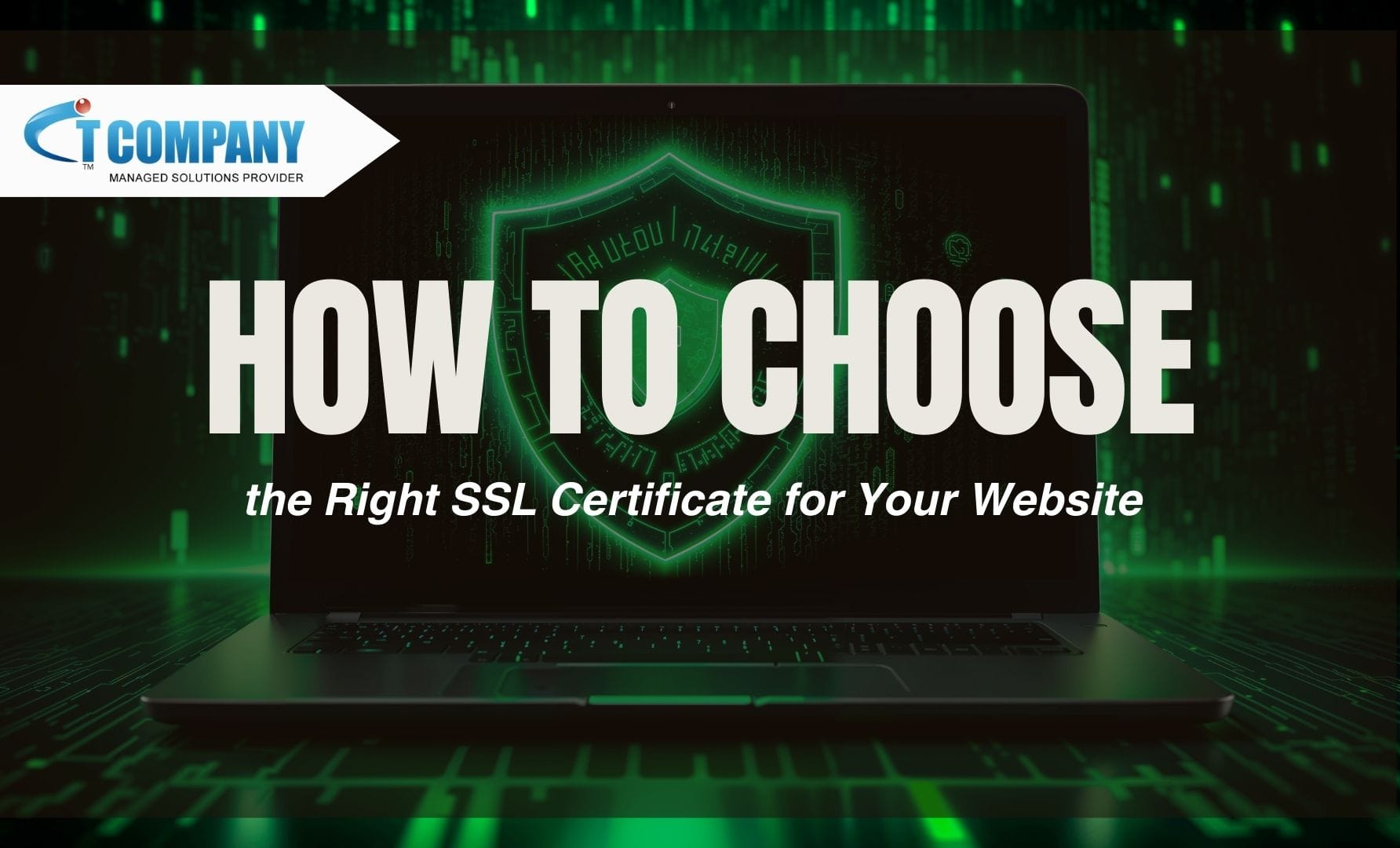Introduction
In today’s competitive online market, website security is no longer a luxury — it’s a necessity. Cyber threats are becoming more sophisticated, and customers are more cautious than ever about where they share personal or payment information. One of the simplest yet most powerful ways to protect your visitors is by installing the right SSL (Secure Sockets Layer) certificate. But with so many SSL types and providers available, making the right choice can feel overwhelming. This is where IT Company Australia steps in — helping Australian businesses of all sizes choose, install, and manage SSL certificates tailored to their specific needs. From e-commerce giants to small local service providers, having the right SSL can mean the difference between building trust or losing a potential sale.
Understanding What an SSL Certificate Does
An SSL certificate encrypts the data transmitted between your website and your visitors. This ensures that sensitive information such as passwords, credit card numbers, and personal details cannot be intercepted by malicious actors. When your site has SSL enabled, visitors will see a padlock icon in the browser address bar, and your URL will start with “https://” instead of “https://.” This isn’t just a cosmetic change — it’s a signal to users that your site is secure and trustworthy. In Australia, with the rise in cybercrime and data privacy concerns, an SSL certificate is also a key step towards meeting regulatory compliance standards. For businesses handling financial or medical data, SSL is not optional — it’s mandatory.
Types of SSL Certificates You Can Choose From
Choosing the right SSL means understanding the main categories available. Each type offers different levels of validation, coverage, and cost.
Domain Validated (DV) SSL Certificates
- Validation level: Basic. Only verifies domain ownership.
- Best for: Blogs, personal websites, small business sites without heavy transactions.
- Pros: Affordable, quick issuance.
- Cons: Minimal trust indicators — not ideal for high-value transactions.
Organisation Validated (OV) SSL Certificates
- Validation level: Medium. Confirms both domain ownership and organisational details.
- Best for: Established businesses seeking a balance of cost and trust.
- Pros: Displays organisation information in the certificate.
- Cons: Slightly longer issuance time due to verification.
Extended Validation (EV) SSL Certificates
- Validation level: Highest. Involves rigorous verification of organisation identity.
- Best for: E-commerce, finance, legal, and high-profile websites.
- Pros: Strong trust indicators, often displaying the company name in the browser bar.
- Cons: Higher cost and longer approval process.
Wildcard SSL Certificates
- Purpose: Secures a primary domain and all its subdomains.
- Best for: Businesses with multiple services or regional subdomains.
- Pros: Saves money vs buying multiple SSLs.
- Cons: If one subdomain is compromised, all may be at risk.
Multi-Domain (SAN) SSL Certificates
- Purpose: Secure multiple distinct domain names under one certificate.
- Best for: Businesses managing several brand websites.
- Pros: Simplifies management and renewal.
- Cons: More expensive than single-domain SSLs.
How SSL Certificates Boost SEO and Customer Trust
Google has confirmed that HTTPS is a ranking signal. A secure site can get a slight boost in search rankings compared to a non-secure equivalent. From a customer perspective, an SSL certificate is a visual trust badge. When visitors see the padlock icon or your verified company name in the address bar, they’re more likely to stay, engage, and make purchases. In competitive industries, this trust factor directly translates to higher conversion rates. Without SSL, browsers like Chrome may even display “Not Secure” warnings — a red flag that can scare away potential clients.
Factors to Consider Before Choosing Your SSL Certificate
- Number of Domains/Subdomains – If you run multiple sites or subdomains, a wildcard or multi-domain SSL may save time and money.
- Level of Trust Needed – For e-commerce or finance, EV SSL is worth the investment.
- Compliance Requirements – Industries like healthcare and finance have stricter rules, making higher validation levels necessary.
- Budget – While DV SSL is cheapest, consider the potential revenue loss if customers hesitate due to low trust indicators.
How IT Company Australia Helps You Select and Install the Right SSL
- Expert Assessment – We evaluate your business type, website structure, and compliance needs.
- Trusted Procurement – Partnering with top certificate authorities ensures quality and compatibility.
- Professional Installation – Proper configuration to prevent browser errors and maximise security.
- Renewal & Monitoring – Automated reminders and proactive monitoring to avoid SSL expiry.
With IT Company Australia, you’re not just buying a certificate — you’re getting an end-to-end security solution.
Common Mistakes to Avoid
- Choosing solely on price — Cheap SSL may lack needed validation.
- Ignoring browser compatibility — Not all SSLs are trusted by all browsers.
- Forgetting renewals — Expired SSL causes site warnings and trust loss.
Step-by-Step Guide to Getting Your SSL Certificate
- Identify your security needs.
- Choose the appropriate SSL type.
- Purchase from a reliable provider (like IT Company Australia).
- Install and test.
- Set renewal reminders.

